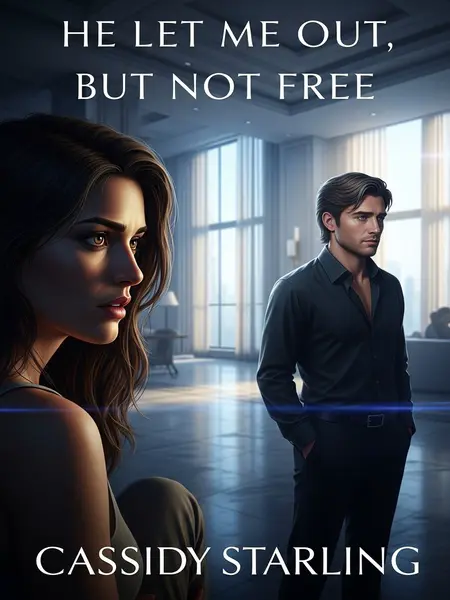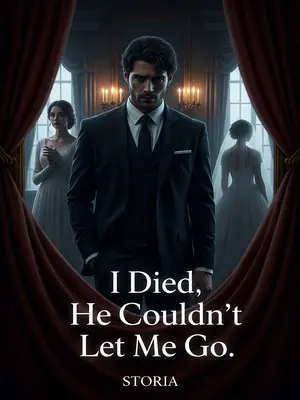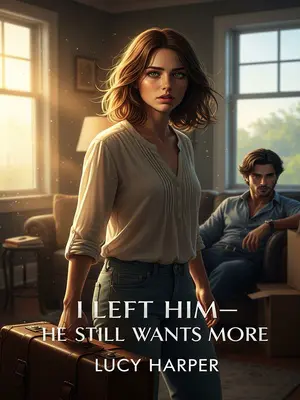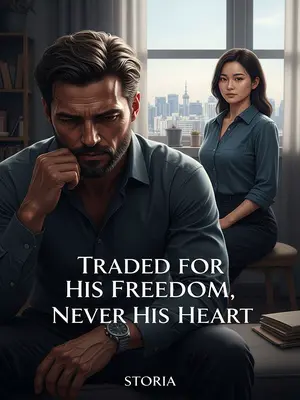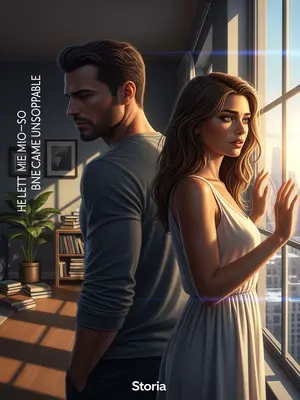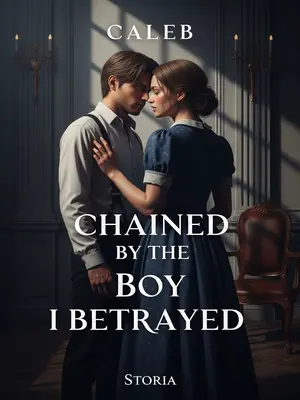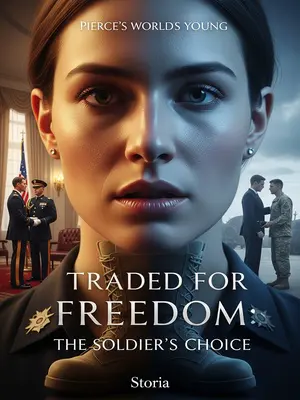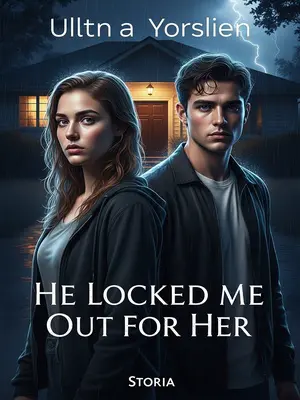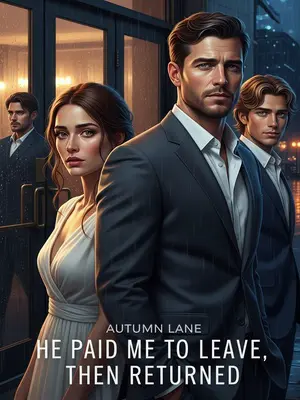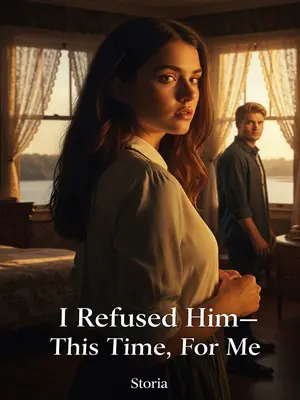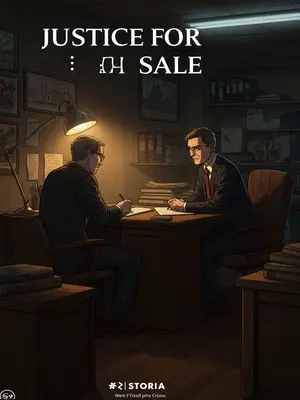Chapter 1: Out of Prison, Into the Fire
The day I got out of prison, Matthew Sterling was nowhere to be found. Instead, it was his assistant, Vanessa Wu, who showed up to pick me up—exactly the opposite of what I’d hoped for, but not entirely a surprise.
The morning air pressed in heavy, thick with the smell of wet asphalt. Behind me, the prison gates slammed shut with a finality as sharp as a slap. I caught myself scanning the parking lot, half-hoping for Matthew’s familiar silhouette by a car. Of course, it was Vanessa—impeccably dressed, sunglasses perched on her nose, arms folded like she owned the curb.
Vanessa. The woman I’d stabbed—my own shameful claim to infamy. I’d expected her to hate me, but instead she’d forgiven me, at least outwardly. She even offered advice, as if we were just two people with a complicated history:
She paused, then said, “Try to stay out of trouble, okay?”
Her words hung in the air. Oddly gentle. For a second, it felt like we were just two old friends catching up over coffee, not adversaries with blood between us. The coolness in her voice was unmistakable, but there was something almost motherly there too—like a mom catching her kid sneaking in past curfew.
Then, out of nowhere, Vanessa grabbed a tree branch and gave me a sharp whack across the back. I jerked, startled. She didn’t pause, just grinned and gave me another, just as hard. My eyes widened, but her face stayed gentle, her smile never faltering.
“Mr. Sterling told me to bring a branch,” she explained, her tone light. “Said I needed to shake off the bad luck clinging to you. Some old wives’ tale, I guess. Like knocking on wood.”
She really leaned into the words ‘bad luck,’ as if she could beat the misfortune right out of me.
Great. Just what I needed.
Those swats weren’t gentle or playful—she meant it. The branch snapped across my already bruised back, burning with pain. I blinked hard, refusing to let the tears spill, her smile fixed as if this were just another family ritual.
The pain was sharp, but I bit down hard on the inside of my cheek, refusing to give her the satisfaction of seeing me flinch. Old habits die hard.
If this were the old Cassidy Parker, I would’ve come at her swinging, fists up, and wouldn’t have stopped until I got even. But now? I just lowered my head and forced a careful smile:
“Thank you.”
My voice sounded foreign to my own ears—soft, even polite. Weird. Prison had a way of sanding down the rough edges, teaching you when to fight and when to keep your head down. I tucked my hands into my sleeves, knuckles white.
That’s what they don’t tell you about prison. Learning to smile carefully and avoid conflict was the most important lesson I picked up.
I’d learned to keep my shoulders hunched, my eyes low. The less you drew attention to yourself, the better. I’d practiced that careful smile in the cracked mirror above my bunk, trying to make it look real. Even when it wasn’t.
The whole ride, I clutched my duffel and leaned into the window, keeping as much distance from Vanessa as I could.
The ride was quiet except for the hum of the engine and the occasional buzz of Vanessa’s phone. I watched the world blur by. As if distance could erase the last few years.
Vanessa took a call. She hung up, her face suddenly grim.
Her lips pressed into a thin line, fingers tapping restlessly on the dashboard. I could feel the tension radiating off her like the air right before a thunderstorm.
“Where to, Ms. Wu?” the driver asked.
He glanced in the rearview, eyes darting. His voice was polite but wary, like he was bracing for whatever drama might unfold.
Reluctantly, Vanessa said, “Back to Sterling House.”
She turned and shot me a glare:
“Don’t think just because Mr. Sterling is letting you come back that you have a chance. You’re already divorced. He’s just being nice because you’ve got nowhere else to go.”
Her words were sharp, each syllable laced with warning. I could practically hear the unspoken: don’t get comfortable, don’t even think about it. Message received. It was the same look she used to give me in the office, back when I still thought I belonged.
Clutching my bag, I nodded quickly and replied, “Yeah. I know.”
I gripped the handles of my duffel bag so tight my knuckles ached. The words came out small, almost automatic, like I’d rehearsed them a hundred times. Maybe I had. My throat felt tight.
Vanessa studied me for a moment, as if weighing whether I was telling the truth. My stomach twisted, waiting for her verdict.
Her gaze lingered, searching for any flicker of defiance or hope. I kept my face blank. No tells.
She didn’t need to worry. I was never a threat.
We weren’t even playing the same game. She was polished, unbreakable, the kind of woman who always landed on her feet. I was just trying not to drown.
When I first realized that, it hurt. I acted out. Picked fights. Anything to get a reaction. People are weird—the more Matthew Sterling disliked me, the more I liked him. Funny how that works.
I used to chase after him like a stray cat. Always hoping for a scrap of affection. The rejection stung. Still, I kept coming back, thinking maybe this time would be different.
But over time, I finally understood: you can’t force what isn’t yours. After these years in prison, I’d worked through all the love and heartbreak. If I’d learned sooner that you can’t force what isn’t meant to be, maybe I wouldn’t have ended up like this.
The realization was like swallowing a mouthful of broken glass. Painful. But necessary. I was tired of fighting for things that were never mine to begin with.
The scenery outside the window grew more familiar as we drove. The things that once bored me—I couldn’t get enough of them now.
The neighborhoods blurred past—oak trees draped in Spanish moss, the faded paint on the corner diner, the little league field where I’d once watched summer games. It all looked softer than I remembered. Sweet, and a little sad.
The car pulled up in front of the mansion. The day I left, the roses were in full bloom. Now, spring was here again, but the petals were already falling.
The house looked the same—big, stately, a little too perfect. Like nothing bad could ever happen here. The roses along the walkway were drooping, petals scattered like confetti on the stone steps. I hesitated before getting out, the weight of the past pressing down on me.
Most of the old staff in the house were gone, replaced by new faces who eyed me with curiosity. Only Mrs. Hargrove, who’d raised me since I was little, stood at the back. When she saw me, her eyes turned red. But now, both of us were just guests here. We just traded glances. Maybe later.
The new staff whispered behind their hands, stealing glances my way. Mrs. Hargrove lingered near the staircase, her hands twisting the hem of her apron, silently promising we’d talk soon. I offered her a small, shaky smile. Hoping she’d understand.
Vanessa got out first. The mansion’s butler hurried over, all smiles:
“Ms. Wu, welcome.”
He glanced at me and asked tentatively, “And this is…?”
Vanessa gave me a sideways look and replied with a shrug, “Someone unimportant.”
Her words stung more than I expected. I should’ve been used to it.
The butler understood right away. His gaze toward me grew more dismissive, and the hand he’d raised to help with my luggage froze in midair. I was left to drag my own bag. Humiliation burned in my chest.
Vanessa seemed busy, juggling call after call. She threw a few snide comments over her shoulder and vanished.
Her heels clicked down the hallway, her voice rising and falling in clipped tones as she disappeared into the study. Her words echoed, long after she was gone.
I trailed behind the butler, head down, suitcase in hand. Like a child who’d done something wrong.
The marble floors were cold under my sneakers. I kept my eyes down. Don’t make trouble.
“Mr. Sterling doesn’t want anyone in his room. Pick any other room.”
The butler’s tone was flat, rehearsed, as if he’d given this speech a hundred times before. I nodded, not trusting myself to speak.
Matthew liked his peace and had a thing about cleanliness. He’d never share a bed with anyone. Back then, I’d locked all the other rooms, so he was forced to sleep next to me. I’d jammed the locks, just so he’d have no choice. But now, with no one to shield me, I wouldn’t make a scene or be a nuisance.
I remembered the fights we used to have over the thermostat, the way he’d sigh and let me win, just to keep the peace. Now, it all felt like someone else’s life.
I chose the room farthest from Matthew’s. It was packed with junk and thick with dust. I started to tidy up. Mrs. Hargrove slipped in quietly and pulled me into a hug.
Her arms wrapped around me, warm and familiar. I inhaled the scent of her lavender soap, something that always reminded me of childhood summers and safety. For a second, I let myself lean into her. Just breathing.
I felt her warmth, my nose prickling, but my eyes stayed dry. Uncomfortably so.
The urge was there—a tightness in my chest, a sting behind my eyes—but the tears wouldn’t come. Maybe I’d run out.
I used to be famous for crying—the kind of kid who’d get anything she wanted with tears. If I cried, even the moon wasn’t out of reach. My sister would find a way.
But in prison, I stopped crying. It never helped, and only made it more fun for people to bully you. So I stopped. For good.
Crying became a luxury I couldn’t afford. It was like putting up a sign that said “kick me.” I learned to swallow my pain.
Mrs. Hargrove looked me over from head to toe, like she couldn’t see enough:
“You’ve gotten thinner, and paler.”
She brushed a stray hair from my face. Her fingers shook.
She fussed over me, straightening my collar, as if she could put me back together.
Over the years, I’d done every chore, but she refused to let me help, insisting on doing everything herself. I let her. I needed it.
By the time we finished cleaning, night had fallen.
The room smelled faintly of lemon polish and old books. Outside, the cicadas had started up, their song buzzing through the open window. Summer sounds. Old memories.
After a long pause, she finally said, “Vanessa and Mr. Sterling have gotten close these past years. People say Vanessa…”
She trailed off. Didn’t want to upset me.
I could see the worry in her eyes, the way her lips pressed together. She didn’t want to hurt me. Didn’t want me to hope.
I knew what she meant. I wanted to tell her it was fine, that I’d already let go. But the ache in my chest said otherwise.
“I know. I won’t think about it anymore.” I forced a smile. It felt brittle.
Back then, I was just a kid, determined to get what I wanted. In my first twenty years, everything came easy—except Matthew. Maybe, as people say, everyone gets what’s coming to them, sooner or later.
Sometimes I wondered if this was karma, if every selfish thing I’d done had finally caught up with me. The universe always balances the scales.
His family was poor. He wore white shirts so often they’d gone yellow, always in the front row, laser-focused in class. He rarely smiled; there was always a shadow in his eyes. I got lovesick over him. My sister felt bad for me, and it just so happened that Matthew’s mother needed money for her illness.
I remembered the way he’d keep his head down, scribbling notes in the margins of his textbook. I wanted him to look at me. Just once.
My sister offered Vanessa a better job. When it came to a broken first love or a promising future, Vanessa chose her future. Even with the best medicine, Matthew’s mother didn’t make it to Christmas Eve.
Vanessa didn’t look back. She took the job, left Matthew behind, and never apologized. That’s just how it was. Everyone for themselves.
After that, my sister invested three million dollars in Matthew’s company, in exchange for an engagement between him and me. I was clueless. I thought Matthew had finally fallen for me, and I walked into marriage with a smile.
I thought love could be bought. That money would fix everything.
My sister mapped out my whole future. As long as she held those shares, Matthew would have to love and protect me forever. She was my safety net.
She was my shield. When she was gone, I was exposed.
The hallway light crept into the cluttered room. I buried my face in the pillow.
The pillow still smelled faintly of laundry detergent and dust. I squeezed it tight.
Half-asleep, I dreamed of Coal.
The dream came in flashes—bright, sharp, painful. His fur. His whimper.
Coal was my dog, a gift from my mom when I was three. When I was seven, someone tried to kidnap me, and he saved me, losing the use of a leg in the process. He was more family than pet.
He was always by my side, limping after me through the garden, his eyes full of devotion. Losing him broke me.
That day, Coal was sick. I panicked and rushed to Matthew’s company with him. Matthew was in a meeting. Vanessa wouldn’t let me in.
I remember standing in the lobby, Coal cradled in my arms, pleading with Vanessa. She wouldn’t budge.
She smiled sweetly at me, but her nails dug into my dying dog:
“Where’d this little mutt come from? You think Mr. Sterling has time for it?”
Her words cut deeper than any knife. I wanted to scream. But I didn’t.
No matter how I begged, even kneeling, that black wooden door never opened.
I rocked him gently, whispering promises I couldn’t keep. My tears soaked his fur.
He was so good, even at the end—didn’t make a sound. He just looked up at me. Then closed his eyes.
I stroked his head, wishing I could trade places, wishing I’d done something—anything—different.
Vanessa looked down on me, her tone mocking:
“The worst thing that ever happened to that dog was having you as an owner.”
Her words echoed for years.
After that, things got hazy. I just remember a knife flashing on the dining table. On impulse, I grabbed it. Blood everywhere.
The memory blurred at the edges, but the feeling—the rage, the helplessness—never left.
I woke up drenched in sweat. Footsteps outside.
My heart hammered in my chest. The footsteps drew closer.
Bang!
The door slammed against the plaster wall with a crash. I curled up, instinctively.
In prison, the solitary cell doors sounded just like that when they shut. Darkness swallowing you whole.
The sound made my skin crawl. I braced for the worst.
